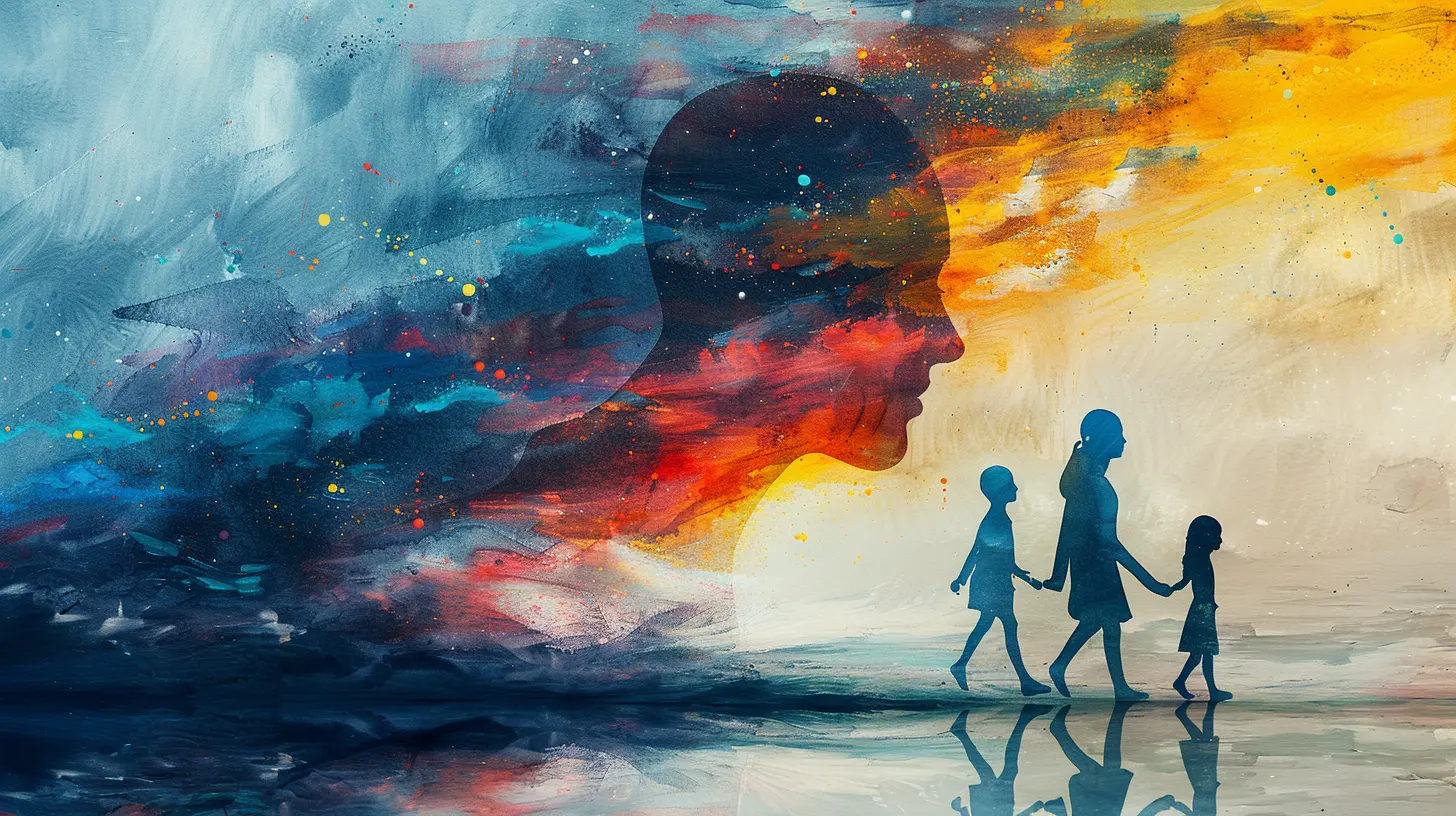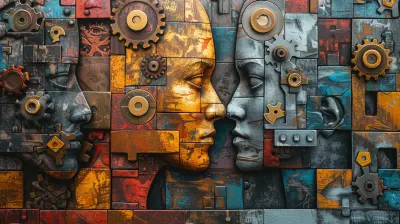The Role of Family Dynamics in the Development of Mental Illness
25 September 2025
Mental illness doesn’t just appear out of nowhere like a sudden thunderstorm. It’s usually the result of a combination of factors—genetics, life experiences, environment, and yes, family dynamics. Let’s talk about that last one: the way your family interacts, communicates, and bonds (or doesn’t) can play a huge role in shaping your mental health.
If you've ever thought, "Wow, my family is lowkey driving me crazy," you're not alone. But the truth is, there's a fine line between typical family dysfunction and the kind of toxic environment that can seriously impact someone's mental well-being. So, let’s dive into the nitty-gritty of how family behavior, patterns, and relationships can contribute to mental illness.
What Exactly Are Family Dynamics?
Let’s break it down in simple terms. Family dynamics are the invisible strings that tie everyone in a family together. It’s how family members interact, how roles are distributed, the kind of communication used (or avoided), and how emotions are expressed.Now, every family has its quirks. Nobody’s perfect! But when certain patterns become unhealthy—like constant conflict, lack of support, or emotional neglect—it can lay the groundwork for mental health issues.
Why Does Family Play Such a Big Role?
Because it’s your first exposure to the world.From the moment you’re born, your family is your first social circle. They model how you should act, how you deal with stress, how you handle emotions, and how you value yourself. So, if your emotional needs aren't being met consistently, or worse, if you're in a chaotic or abusive household, the effects can be long-lasting.
Let’s look at some ways this plays out.
1. Parenting Styles: The Root of Many Things
Ever heard the phrase, “It all starts with the parents”? Well, there’s some truth there.Authoritarian Parenting
Strict. Controlling. “My house, my rules.” That’s the authoritarian parent. Kids raised in this environment may feel constantly judged or pushed to meet unrealistic expectations, which can lead to anxiety, low self-esteem, or even depression.Permissive Parenting
The “cool” parents who let their kids do whatever they want. While it sounds fun, the lack of boundaries can create confusion and make children feel insecure and neglected—leading to emotional instability.Neglectful Parenting
This one's the toughest. When parents are emotionally or physically absent, it can feel like you've been left to survive on your own. This lack of connection is a breeding ground for a range of mental illnesses—especially anxiety disorders and depression.Authoritative Parenting (The Ideal)
Firm but fair. Emotionally supportive. Encourages independence while maintaining boundaries. This style is linked to the most positive mental health outcomes. But unfortunately, not everyone gets that kind of upbringing.
2. Sibling Relationships: Not Just Sibling Rivalry
Think back to your childhood fights with your siblings. Most people assume it’s all in good fun. But for some, it isn’t.Toxic rivalry, favoritism, bullying between siblings, or feeling like you’re always in competition can lead to feelings of inadequacy, jealousy, and emotional distress. Believe it or not, long-term sibling conflict has been linked to depression and anxiety later in life.
And let's not forget—the way siblings interact often mirrors how parents treat them. So if one child is seen as "the problem" and the other as the "golden child," that can seriously mess with a kid’s self-worth.
3. Communication Patterns Matter... A Lot
A family that avoids talking about emotions, brushes issues under the rug, or uses yelling instead of listening sets a poor foundation for mental health.When children grow up feeling unheard or invalidated, they often learn to suppress emotions, distrust others, or even start to believe that their feelings don’t matter. This emotional repression is tied to conditions like depression, anxiety, and even eating disorders.
On the flipside, open and honest communication where everyone feels safe to say how they feel? That kind of environment can act as a protective shield against many mental health issues.
4. The Impact of Family Trauma
Let’s get real. Families go through tough stuff—divorce, loss, financial struggles, abuse, addiction. But when these experiences are frequent and unresolved, they become traumatic.These traumatic events, especially when experienced as a child, can change the way the brain processes stress. It's called Adverse Childhood Experiences (ACEs)—and the more ACEs you have, the higher your risk for developing mental illness later on.
And guess what? It’s not just about what happened to you—it’s about how your family helped you cope with it. Some families pretend like everything’s fine (even when it’s clearly not). Others might blame or shame. That kind of reaction can make things worse.
5. Cultural and Generational Influence
In many cultures, discussing mental health is still a taboo. "Just be strong." "We don't talk about feelings." "What happens in this house stays in this house." Sound familiar?In these family settings, mental illness might be dismissed, misunderstood, or stigmatized. This can prevent individuals from seeking help early, sometimes waiting until they're in crisis mode.
Also, older generations may not have had the tools or knowledge to deal with mental health issues. That doesn’t mean they didn’t care—but their emotional unavailability can still have a lasting impact.
6. Enmeshment and Codependency
Some families are so close, it’s hard to tell where one person ends and the other begins. While closeness can be great, too much of it—called enmeshment—can be suffocating.In enmeshed families, personal boundaries don’t exist. One person’s mood affects everyone else. Decisions are made as a unit, rather than individually. This can lead to identity issues, anxiety, and difficulty forming healthy relationships outside the family unit.
Codependency often comes right along with enmeshment. If you grow up always putting others first—because that’s just how your family works—you might struggle later with guilt, self-neglect, and low self-worth.
7. The Role of Family Support in Recovery and Prevention
Here’s the good news—families can also be a powerful source of healing.When someone is dealing with mental illness, having a supportive and understanding family can make a world of difference. It’s like having a safety net when you feel like you're falling.
Support might look like:
- Encouraging therapy or medication
- Being patient during bad days
- Educating themselves about the illness
- Accepting without judgment
Families that evolve from toxic patterns into healthy, supportive systems can even help prevent mental illness in future generations. And that’s pretty powerful stuff.
So, What Can You Do if You Come From a Dysfunctional Family?
You’re not doomed. Far from it. The first step is awareness—recognizing the patterns that may have affected you. Then, you take steps to heal.Here are a few things that can help:
- Therapy: Individual or family therapy can be life-changing.
- Setting boundaries: Even with family members.
- Building a chosen family: Friends and mentors who support and understand you.
- Working on self-compassion: It’s not your fault. And you deserve to heal.
Remember, breaking cycles doesn’t happen overnight. But every step you take brings you closer to a healthier mindset and future.
Conclusion: Your Family Is a Chapter, Not the Whole Book
Your family may have shaped your beginning, but they don’t get to write your ending. The role of family dynamics in the development of mental illness is real and complex, but it’s not the end of the story.If you’re struggling, know that your past doesn’t define your present or future. Families are powerful—but so is your resilience. And the more we talk about these things openly, the more we can support each other in growing past whatever hurt us.
So, whether you're someone healing from your family's impact, or you're trying to be the change for the next generation, keep going. You're not alone on this path.
all images in this post were generated using AI tools
Category:
Psychological DisordersAuthor:

Ember Forbes
Discussion
rate this article
1 comments
Julian Navarro
Understanding family dynamics is crucial for addressing the root causes of mental illness effectively.
October 15, 2025 at 4:28 AM

Ember Forbes
Thank you for your insightful comment! Family dynamics indeed play a vital role in shaping mental health, and addressing these factors can lead to more effective solutions.


